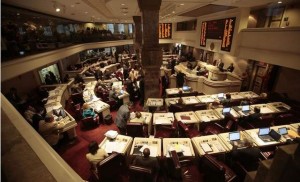Bill sets up a “win-win” scenario for communities, taxpayers, Speaker says
MONTGOMERY – The Alabama House of Representatives on Tuesday will consider legislation designed to encourage economic investment and job growth in low income areas by leveraging available federal tax incentives with new state tax incentive offerings.
The legislation, House Bill 257 sponsored by State Rep. Jamie Ison (R – Mobile), is first up on the Special Order Calendar for Tuesday, the tenth day of the 2012 Regular Session.
“We have a real opportunity to help our inner cities and other economically depressed areas recruit projects, spur investment and grow jobs,” Rep. Ison said. “This legislation uses a common sense conservative, free market approach to plant the seeds needed for entrepreneurs to become active in areas they might otherwise not pursue.”
Under the provisions of HB257, the state would create an investment tax credit to complement the New Markets program currently offered through the U.S. Treasury Dept., which has incentivized roughly $30 billion in private investment in businesses across the country over the past decade. Here’s how it works:
- In exchange for their investments in qualified businesses and projects located in low-income downtown areas throughout Alabama, the state will offer investors a future tax credit.
- Investors could claim a 50 percent graduated tax credit over the course of seven years for investments up to $240 million. The credit is zero for the first year and 8 percent for each of the next five years, the ten percent the seventh year.
- The state’s portion of tax credits would be capped at $20 million a year, or $120 million over a span of six years.
State Rep. Jay Love (R-Montgomery), who chairs the Ways and Means – Education Committee, said he supports the legislation because Alabama has fallen behind other states in similar capital investments due to a lack of state incentives that complement the federal tax credit program.
“Our sister southeastern states have embraced the New Markets program and offered their own attractive tax incentives, but Alabama has largely fallen behind when it comes to these venture capital investments,” Love said. “By offering these incentives, we can grow parts of our communities that need the most help while expanding the tax base through new jobs and opportunities.”
Louisiana has benefited from more than $1.5 billion in New Markets-based investments, and Mississippi has reaped almost $500 million in direct capital while Alabama has seen only $77 million flow into the state through the federal incentive program. Since passing its New Markets state tax credit in 2010, Florida has seen its investments quadruple.
Speaker Hubbard said encouraging development in struggling areas is a “win-win” scenario for taxpayers and investors.
“All session we have been working together to find ways to boost economic growth across the industrial spectrum,” Speaker Hubbard said. “This legislation offers help to communities that need it the most, and it’s a great deal for taxpayers too. Economic impact studies of the Florida program showed that for every $1 in tax incentives offered, roughly $4 flowed back to state coffers. This bill can mean more jobs for our citizens and more money flowing toward critical needs like education. It truly is a ‘win-win’ scenario.”
The House convenes at 1:00 p.m. Tuesday.











